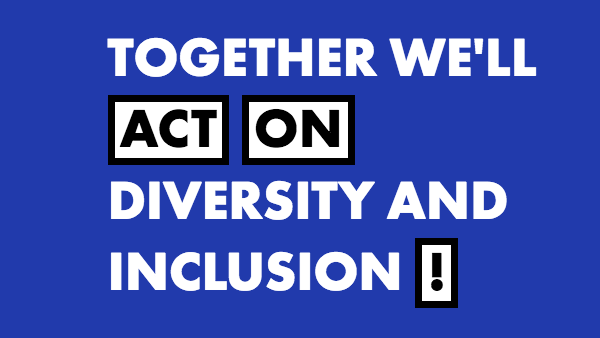As Nurses, our commitment is unwavering: to provide the highest quality care to every patient who walks through our doors. This isn't a selective promise; it's the very foundation of our profession. So, when I hear whispers of healthcare institutions reconsidering their Diversity, Equity, and Inclusion (DEI) initiatives in response to the shifting political landscape, a deep concern settles within me. Now, more than ever, we must amplify why DEI isn't a trendy buzzword, but a critical imperative for the health and well-being of our communities.
Let's be clear: healthcare disparities are not abstract concepts; they are stark realities with tangible, often devastating consequences. We see them in the higher rates of chronic diseases among marginalized populations, the delayed diagnoses stemming from implicit bias, and the lack of culturally competent care that leaves patients feeling misunderstood and underserved. Ignoring DEI won't make these disparities vanish; it will only allow them to fester and widen.
Think about it from a practical standpoint. Our patient populations are becoming increasingly diverse. How can we, as healthcare professionals, effectively care for individuals whose backgrounds, beliefs, and experiences differ vastly from our own without actively cultivating cultural humility and understanding? DEI initiatives provide the framework for this crucial learning and growth. They equip us with the tools to communicate effectively across cultures, to recognize and address our own unconscious biases, and to tailor care in a way that respects individual needs and preferences.
Consider the impact on patient trust. When patients feel seen, heard, and respected by their healthcare providers, they are more likely to engage in their care, adhere to treatment plans, and ultimately experience better health outcomes. Conversely, a lack of cultural sensitivity can lead to mistrust, poor communication, and a reluctance to seek necessary medical attention. Can we, in good conscience, allow such barriers to exist?
Furthermore, DEI initiatives foster a more inclusive and supportive work environment for healthcare professionals. When individuals from diverse backgrounds feel valued, respected, and empowered, they are more likely to thrive, contribute their unique perspectives, and remain within the healthcare system. This is particularly vital at a time when we are facing critical staffing shortages. A diverse and engaged workforce brings a wider range of skills, experiences, and problem-solving approaches to the table, ultimately enriching the quality of care we provide.
Also DEI within Schools of Nursing cannot be overstated, especially when it comes to educating future Nurses about the varied populations they will serve. The fabric of the US population is rich with differences, encompassing a broad spectrum of backgrounds. Beyond race and ethnicity, our communities include individuals from the LGBTQ+ community, a significant veteran population, and those adhering to a multitude of religious and cultural beliefs. Each of these groups presents unique healthcare needs, perspectives, and potential barriers to care that future Nurses must be equipped to understand and address.
Integrating DEI principles into Nursing curricula fosters empathy and cultivates culturally competent care. Nurse Educators are tasked with instilling in their students the understanding that healthcare is not a one-size-fits-all endeavor. For instance, religious beliefs can influence medical decisions, while cultural practices may impact dietary restrictions or end-of-life care preferences. Similarly, understanding the specific health challenges faced by the LGBTQ+ community or the unique needs of veterans with service-related injuries or PTSD is crucial for providing holistic and effective care. As the world continues to evolve and become more interconnected, it is imperative for Nurse Educators to embrace this reality and convey its profound implications to their students, ensuring the next generation of Nurses is prepared to deliver compassionate, equitable, and effective care to all individuals, regardless of their background or identity.
Some might argue that focusing on DEI distracts from the core mission of providing quality care. I would argue the opposite. DEI is integral to providing quality care for all. It’s about dismantling systemic barriers that prevent equitable access and outcomes. It’s about creating a healthcare system that truly serves everyone, regardless of their race, ethnicity, gender identity, sexual orientation, disability, socioeconomic status, or any other dimension of diversity.
As Nurses, we are advocates for our patients. We are their voice when they are vulnerable. We cannot afford to be silent on this issue. We must actively champion DEI initiatives within our institutions, reminding leadership that these are not expendable luxuries but essential investments in the health and well-being of our communities.
Stepping back from DEI is not a neutral act; it is a step backward in our commitment to equitable and high-quality care. Let us stand firm in our conviction that every patient deserves to be treated with dignity, respect, and understanding. Let us continue to build healthcare systems where diversity is celebrated, equity is the standard, and inclusion is the reality. Our patients – and our profession – deserve nothing less.






 The
The